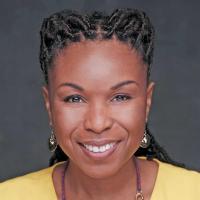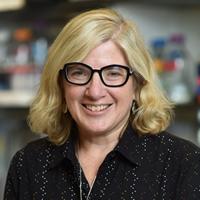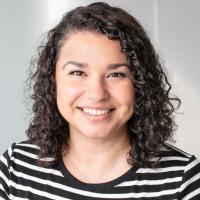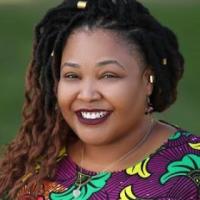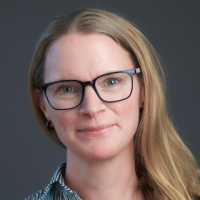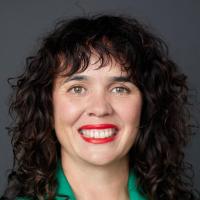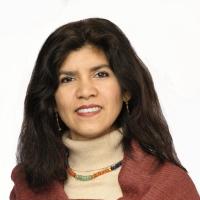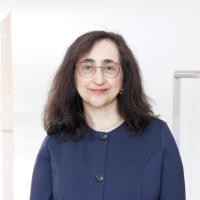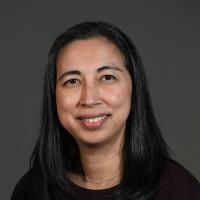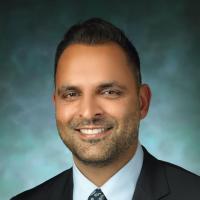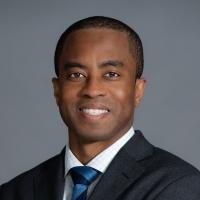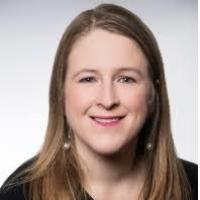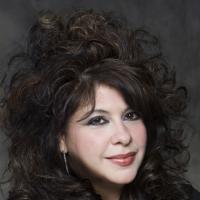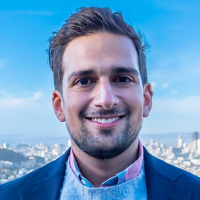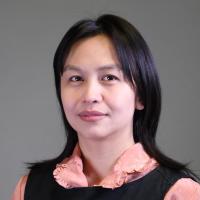YES in THE HEIGHTS Program
About the program
The YES in THE HEIGHTS program, formerly known as the Continuing Umbrella of Research Experience (CURE), at the Herbert Irving Comprehensive Cancer Center (HICCC) is a summer internship for high school and undergraduate students that aims to increase the pool of youth entering STEM fields.
In addition to expanding active cancer research environments, the National Cancer Institute's Youth Enjoy Science (YES) Research Education Program (R25) aims to support institutions in the maintenance and development of innovative early intervention strategies to guide and prepare youth for a career in biomedical research.
This program encourages individuals who have not had substantial biomedical research experience, or who have the potential to significantly benefit from additional biomedical research experience to pursue further studies or careers in research.
The mission of the Northern Manhattan-based program, YES in THE HEIGHTS, is to reduce the cancer burden through training and mentorship. Over two years, the YES students gain hands-on experience in cancer research by working alongside world-renowned researchers and physicians focusing on cancer.
The 8-week program includes a formal orientation and hands-on scientific training as well as training in academic etiquette and professionalism, completion of an Individual Development Plan, required submission of a scientific abstract, and for 2nd years, a scientific oral presentation.
Program details
Program benefits
- Participants are assigned a Faculty Mentor who will guide their summer research. The Faculty Mentor will be from a discipline, or involved in research, that aligns with the participant’s research interests.
- Participants attend a weekly HICCC Cancer Biology Journal Club where they present and discuss cancer research articles with other HICCC interns.
- Participants build community among their peers in social and networking events.
- Participants will be guided in producing an Individual Development Plan, scientific abstract, and for 2nd years, a scientific oral presentation.
- This is a 2-year program (2 summers).
- Participants will be paid for 8 weeks of full-time work (35 hours/week).
Eligibility criteria
-
Only U.S. citizens or permanent residents are eligible.
-
At least 14 years of age.
-
Students must be in good standing at their current school and demonstrate a high aptitude and interest in science.
-
Trainees should be committed to being on the Columbia Medical or Morningside campus in person for 8 weeks.
-
Trainees should be committed to working 8 hours daily between working hours of 8am-6pm during the summer (this is contingent on the lab or group the participant is assigned to).
-
This program does not provide housing for high school or undergraduate students, so we encourage local applications. Exceptions are universities that have established partnerships with the program.
-
We prioritize those from the catchment area that HICCC serves as well as those that participated in any HICCC/Columbia University-related events or activities: Scientific Enrichment Month (SEM), Empower the Citizen Lens ON Science through Education (eCLOSE), State Pre-College Enrichment Program (S-PREP).
-
Please note: This is a highly competitive program. Less than 10% of high school applicants are accepted and less than 20% of undergraduate applicants are accepted.
Program dates
- Undergraduate Scholars: June 1 to July 24, 2026
- High School Scholars: June 29 to August 21, 2026
Application details
Required materials to apply:
- Cover Letter
- Explains why the applicant would like to conduct an internship in cancer research
- Includes a statement that the applicant is fully committed to completing 8 weeks with research group during Summer 2026
- Restricted to 1 page (1-inch margins, Arial font 11 or 12 pt, single spaced)
- Resource for guidance: Cover Letters | Columbia Career Education
- Resume
- Please include relevant courses taken, languages spoken, and your current GPA.
- Resource for guidance: Resumes & CVs | Columbia Career Education
You may upload your cover letter and resume as a single pdf or word file titled “YES Application_‘Insert Applicant Name’.”
- Short Essay Response (300-word limit)
- Prompt: This program is for individuals who have had limited biomedical research experience, and/or who have the potential to significantly benefit from the biomedical research experience. Please explain your research experience and how the YES in THE HEIGHTS program would benefit you.
- This language is distinct from what you write in your cover letter.
- There will be a place to paste or type in the application
- Professional reference
- Name, official email, and relationship of a reference who can speak to your academic or extracurricular pursuits.
- Note: Gmail or personal email addresses are not accepted. Please use a teacher, school administrator, coach, or another non-family member.
- Reference will only be contacted if application is considered in final round.
- Research Interest
- You will be asked to describe your specific research interests
- You can look through this National Cancer Institute site for a range of cancer research areas
Application timeline
-
Application Opens: November 14, 2025
-
Application Due: January 9, 2026
-
Decisions Released: February 2026
What to expect if selected
- Early-February – Staff will contact references ONLY for applicants that have made it to the final round.
- Mid-February – Finalists will be interviewed in a one-on-one virtual interview with a staff member.
- You will have 2 weeks to schedule the interview. If you do not respond in the 2-week window, you will not be considered for an internship spot.
- Late February/Early march - Acceptance emails are sent.
- You will have 2 weeks to accept or reject the position. If you do not respond in the 2-week window, your spot will be offered to another applicant.
- March – Onboarding with Columbia University HR (formal application, background checks, work permits, etc.) begins.
- April – Program Orientations are scheduled (calendar invitations sent out).
- May - Mentor matches are released, Program Welcome Packets are sent out, and Program Orientations are held.
- June – Undergrad Scholars start.
- July – High School Scholars start.
FAQs
What will my schedule look like?
Participant schedules will be mainly dictated by the Faculty Mentor. In addition to working with the mentor in their lab or office, participants will also attend YES in THE HEIGHTS programming and HICCC Cancer Biology Journal Club. Programming varies from week to week, and the Journal Club takes place on Friday mornings. Participants should be committed to being on the Columbia Medical or Morningside campus in person for 8 weeks. Participants should be committed to working 8 hours daily between working hours of 8am-6pm during the summer (this is contingent on the lab or group the participant is assigned to).
What will my research be about?
Your research will be closely, if not completely, related to your Faculty Mentor’s research. You might join an existing project with your mentor or be guided in your own independent research project.
Is housing provided on campus?
This program does not provide housing for high school or undergraduate students, so we encourage local applications. Exceptions are universities that have established partnerships with the program.
I am a graduating high school senior, which group would I be a part of?
You will be considered part of the High School group. Start dates are set to accommodate students’ academic calendar.
I am a graduating college student, can I apply?
Applicants that earn a bachelor’s degree by the start date are not eligible. You must be enrolled in a high school or undergraduate institution for the following Fall semester after the YES summer internship.
Do I get reimbursed for transportation to and from my internship?
No, we do not provide transportation funds to commute to your internship.
Note: We appreciate your interest in our competitive internship program. Please note that internship slots for this year are extremely limited since we have a majority of interns returning to complete their 2nd year. We encourage you to stay connected with us through Scientific Enrichment Month in July (registration opens in March). You can also submit an application next year if not selected. Thank you for your understanding and enthusiasm for this opportunity.
Contact us
Email: canceredu@cumc.columbia.edu
Program co-leaders and team
Diana Rosendo, MEd
- Program Coordinator

Erica Agudelo
- Program Coordinator

Faculty mentors
Population science
Paris Adkins-Jackson, PhD, MPH
- Assistant Professor of Epidemiology and Sociomedical Sciences

Manuela Orjuela-Grimm, MD
- Associate Professor Epidemiology and Pediatrics (in the HICCC) at CUMC
- Faculty, Department of Pediatrics (Division of Pediatric Hematology, Oncology, Stem Cell Transplantation

Clinical science
Brian John Andrew Gill, MD
- Assistant Professor of Neurological Surgery, Columbia University Irving Medical Center (CUIMC)

Ashley Stephens, MD
- Assistant Professor of Pediatrics

Basic science
Angela Christiano, PhD
- Richard and Mildred Rhodebeck Professor of Dermatology
- Professor of Genetics & Development

Tannishtha Reya, PhD
- Herbert and Florence Irving Professor of Basic Science Research in Physiology and Cellular Biophysics

